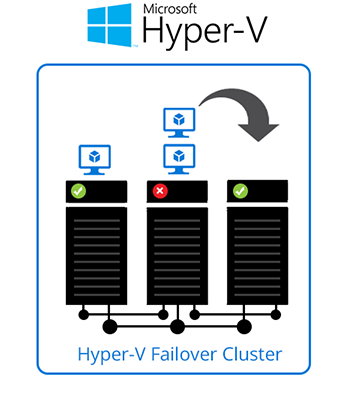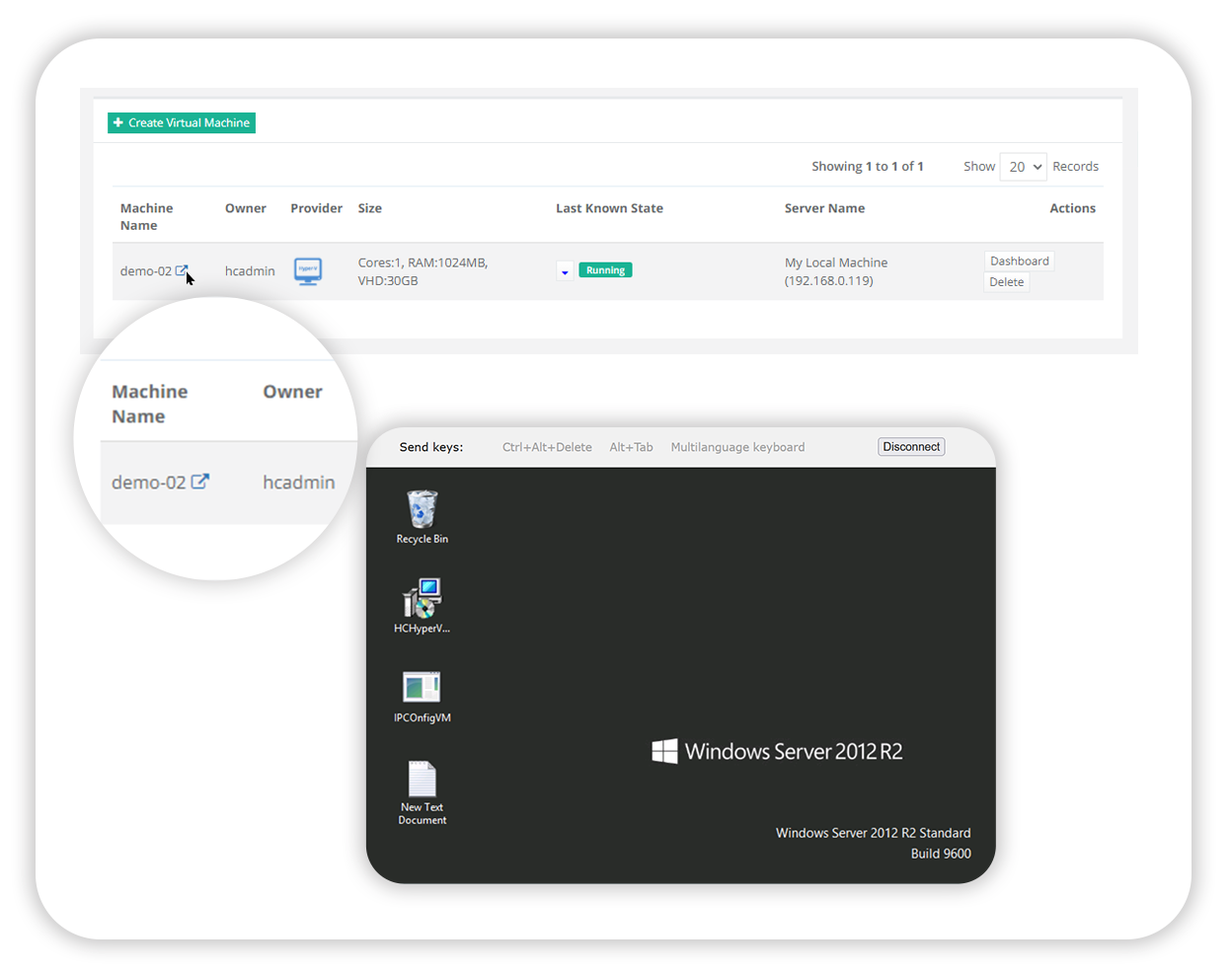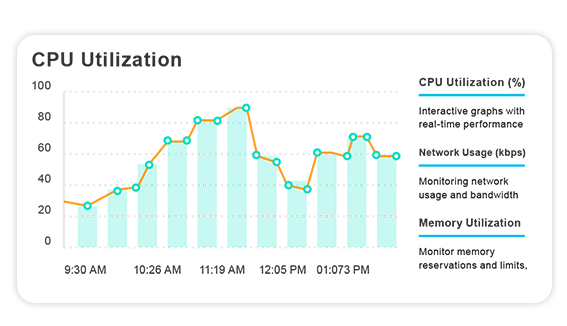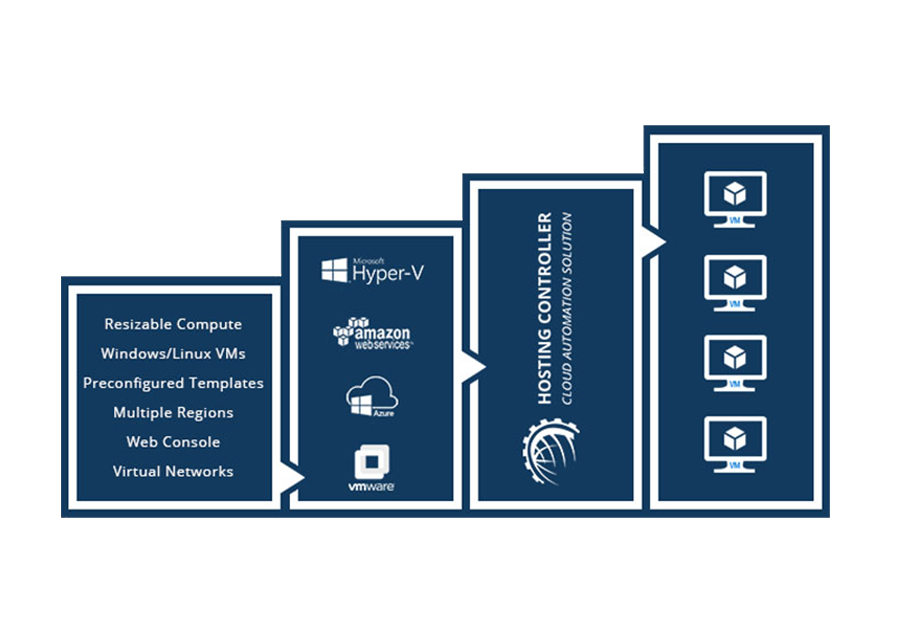Hosting Controller Virtualization Module
HC Virtualization Module is a powerful web-based VPS control panel that allows easy creation and management of Hyper-V and VMware virtual machines. It empowers providers of any size to raise a virtual setup (Windows, Linux), ground up in minutes, deploy VPS instantly and manage everything through the web.

Browser Accessible
Manage all your virtual machines through a self-served web interface. Permit your customers to control their virtual servers from their own browsers.

Easy VPS Deployment
Reduce the time it typically takes to deploy a VPS. Start, pause, shut down and reboot a VPS all from the web.

Preconfigured OS Templates
Use preconfigured OS templates as master copies for creating many consistent and standardized VMs. Create templates for many flavours including Windows, CentOS, Ubuntu and Debian.

Web Console
Configure web console for Hyper-V and enable your clients to access their virtual machines through any convenient web browser.

Failover Clustering
Take advantage of Hyper-V failover clustering to shift workloads to other nodes in case of failure.

Segregated
Confine your virtual servers to their own hosting accounts. Restrict other users from viewing and accessing unauthorized machines.

Cloud and On-premises Platforms
Either provision your virtual machines through Microsoft Hyper-V and VMware ESXi, two best of breed in-house hypervisors or adopt the cloud wholesale. Hosting Controller delivers the best of both worlds.
The cloud IaaS delivery wing of Hosting Controller comprises some of the most potent public clouds including Amazon Web Services (AWS) and Microsoft Azure. You can provision your VMs in any of these public clouds. The extensible architecture of these underlying platforms lets providers and end users alike take advantage of:
Hyper-V Failover Clustering
Hosting Controller takes advantage of Hyper-V failover clustering to extend resilience to your virtual infrastructure. It brings a fortified solution where if a problem is encountered, workloads are shifted to other nodes, ensuring constant uptime.
In the perilous world of service provisioning one of the most sought-after features is failover capability. As a VPS provider you should always ensure high availability of your virtual servers. Hyper-V failover clustering provides a helpful option to shift your server workloads to other hosts in case of failure. Hosting Controller takes advantage of Hyper-V failover clustering to extend resilience to your virtual infrastructure, bringing a fortified solution where if a problem is encountered, workloads are shifted to other nodes, ensuring constant uptime.
How Failover Clustering Works






